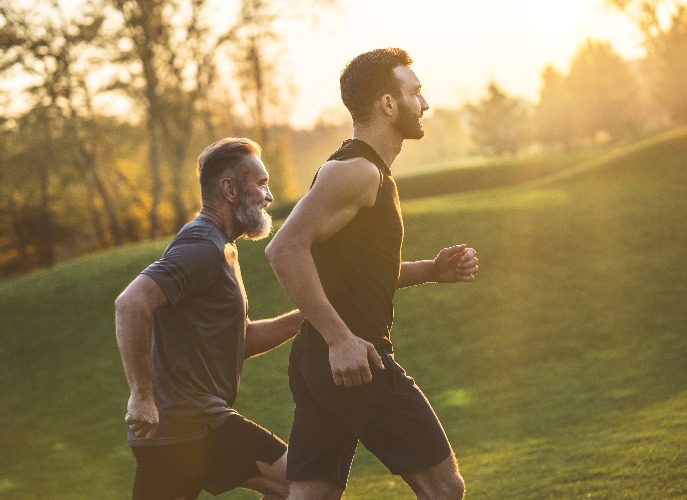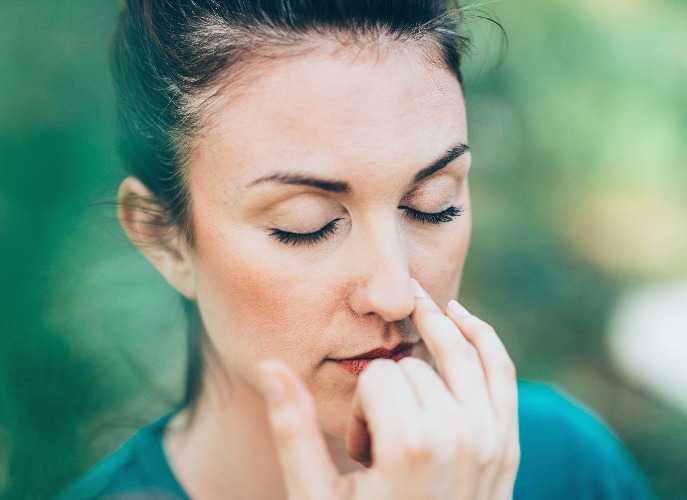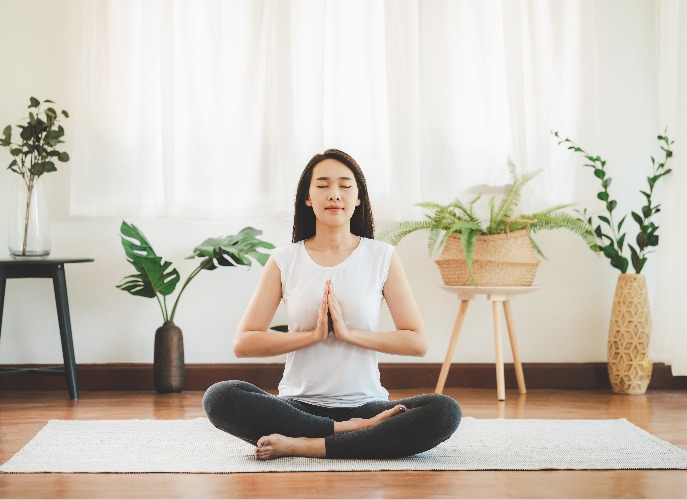Stillness
Touch of Care
“What is Stillness?”
- An intentional state of focused, nonjudgmental awareness of the present moment without interpretation or criticism[71]
- A mental state of calm concentration and positive emotions

“How is it going to benefit me?”
- Helps Preserve the Aging Brain
- Helps create a sense of inner peace and happiness throughout daily life[81]
- Study at UCLA found that long-term meditators had better-preserved brains than non-meditators as they aged[77]
- Fredrickson tested a nine-week loving-kindness meditation intervention and found that the participants who went through the intervention experienced increased daily positive emotions, reduced depressive symptoms, and increased life satisfaction[28]
- Condon, Miller, Desbordes, and DeSteno found that eight-week meditation trainings led participants to act more compassionately toward a person who is suffering (give up their chair to someone in crutches)[29]
- Group of students who underwent a two-week course in mindfulness training boosted their scores on their GREs by more than 30%[75]
Mental Wellbeing
- Improves psychological wellbeing, helps regulate mood, anxiety/panic disorders, and stress
- Helps reduce alcohol and substance abuse
- Helps manage ADHD (Attention Deficit Hyperactivity Disorder)
- Improves rapid memory recall, learning, working memory, and self-awareness[77]
- Reduces emotional eating


Physical Wellbeing
- Lowers blood pressure, improves blood oxygenation, regulates heart rate and respiratory rate[76]
- Improves fatigue and stress in people with chronic pain.[78][80]
- Improves the immune system, helps recover more quickly from cold or flu[80]
- Reduces the risk of heart diseases and stroke[76]
- Helps prevent asthma, rheumatoid arthritis, and inflammatory bowel disease[76]
- Reduces risk of Alzheimer’s and premature death[76]
- Helps manage symptoms of Fibromyalgia[76]
Social & Professional Wellbeing
- Helps with cognitive skills, fosters creativity, improves information processing and decision making on the job[76][77]
- Reduces hostility and conflicts with peers[76]
- Improve executive functioning by improving inhibition abilities[79]
- Increases work motivation, lowers work-related stress, increases job satisfaction, and enhanced job performance[79]
- Improves personal, social relationships, and reduces social isolations [76]
- Increases positivity and compassion resulting in more meaningful relationships.[78]

“What do I need to do?”

- Make Stillness a part of your lifestyle through various practices (Meditation & Mindfulness)
Meditation
- Cultivates enduring qualities such as selflessness and equanimity (mental calmness/composure) especially in difficult situations
- Less likely to react with negative thoughts or unhelpful emotional reactions in times of stress.[80]
- Meditation gives you mental strength, resilience, and emotional intelligence[76]
- Meditation prepares you to deal with stressful events[76]
- Meditation increases awareness of your unconscious mind[76]
- Practice of meditation helps find a better connection with body in the everyday moments and create stronger awareness for how emotions influence behaviors[74]

- Mindfulness meditation fosters creativity[76]
- Meditation, though a solitary exercise, improves your personal and social relationships[76]
- Meditation enhances psychological well-being[76]
- Loving-kindness meditation also reduces social isolation[76]
- Help you create a sense of inner peace throughout your daily life[81]
- Increases positivity and compassion within ourselves resulting in more meaningful relationships.[78]
Daily Meditation Template
MONDAY
Gratitude
Find things to be thankful for throughout your day, and include them in your loving kindness meditation or a gratitude journal[79]
TUESDAY
Compassion
Set an intention to decrease any pain or suffering in others that you encounter throughout your day
WEDNESDAY
Acceptance
Accept yourself as you are and others as they are; appreciate yourself and other people without trying to change them
THURSDAY
Purpose
Think about your ultimate purpose in life, and where and how you find meaning
FRIDAY
Forgiveness
Forgive yourself first, then extend your forgiveness to others for any past transgressions
SATURDAY
Celebration
Make sure to take a day to celebrate all the joy in your life and the lives of others
SUNDAY
Reflection
Reflect on your week, your month, your year, or whatever period makes sense to you ‘now’
Types of Meditation Practices

Mindfulness Therapy
Visit Be360 Integrative Wellness Alliance, Inc Center for a range of services.
- Find a therapist trained in MBSR or MBCT interventions
- Mindfulness-based stress reduction (MBSR) is a therapeutic intervention that involves weekly group classes and daily mindfulness exercises to practice at home, MBSR teaches people how to increase mindfulness through yoga and meditation.
- Mindfulness-based cognitive therapy (MBCT) is a therapeutic intervention that combines elements of MBSR and cognitive behavioral therapy (CBT) to treat people with depression.
“Why should I worry about missing a shot when I haven’t even taken a shot” – Michael Jordan.